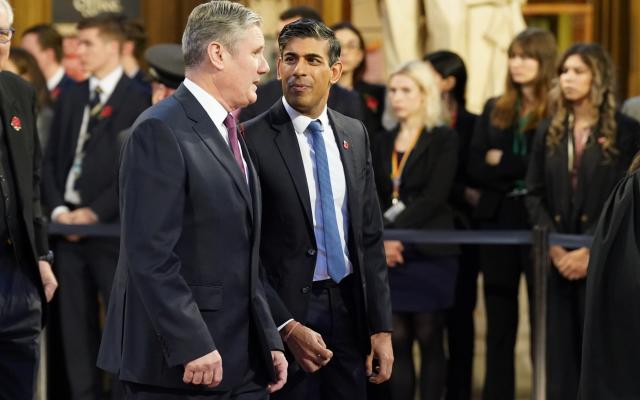Tom Harris
It isn’t entirely Rishi Sunak’s fault. But politics is a tough game and, as the man holding the parcel when the music stops, he’s the one who will have to shoulder the ignominious burden of responsibility for what now seems to be the the Conservatives’ inevitable decimation. And even “decimation” is probably too optimistic a word: the party would undoubtedly be thrilled by only losing a tenth of its MPs, given the apocalypse-level of predictions provided by most polls.
As the last Labour government drew to an end, and in the years since, the Monty Python question could be easily answered. What had the Labour Party ever done for us? The policies were numerous, even if their benefits could be questioned: the national minimum wage, civil partnerships, unprecedented reductions in child and pensioner poverty, trebling of the NHS budget, devolution…
But what, other than finally achieving the electorate’s stated wish to depart the European Union, have 14 years of Conservative government achieved for our citizens? Certainly very little that might be considered “conservative”. Higher taxes, record levels of immigration, a worsening of the housing crisis, industrial action that regularly cripples public services, an explosion in the size and cost of the Diversity, Equity and Inclusion industry. True, there have been some victories – we’re just about back to the level of policing that David Cameron inherited from Labour in 2010. But fixing problems it created can hardly be credited to the government.
Sunak is this administration’s Alec Douglas-Home, the last in a series of consecutive prime ministers over a long period of office, to whom has fallen the thankless task of managing the party as it moves from government to opposition. Luck is a vital commodity in politics and Sunak used all of his allotted supply of it by being promoted to Number 10 in the first place, after barely seven years in parliament. Since then, however, all the luck has been with his chief rival, Keir Starmer, who has become the heir apparent to Downing Street through the ingenious strategy of being in the right place at the right time. Polls have rarely painted a bleaker picture of the choice the public faces. Both men’s approval ratings are in the negative – Sunak’s considerably worse than Starmer’s – and there is little excitement or enthusiasm for the change in government that now appears inevitable at some point this year. Margaret Thatcher wrote in her autobiography that she was appalled, on being elected as prime minister in 1979, by the apparent attitude of the civil service that it was their task to manage Britain’s decline. Yet the general despondency among voters, a poverty of confidence in either side, suggests that we are reliving that grim period when our leaders lack the confidence or the ideas to restore our country to its full potential.
Is this all there is? Is this tiresome, permanent squabble between the parties about minor policy differences the best we can expect? Did the age of the battle of ideas fade with the age of reason? Where are the radical leaders? The radical ideas? Where is the next Thatcher, or even the next Blair, who is prepared to change the political consensus and challenge the establishment? The last 14 years may have been a missed opportunity, but what are the prospects for the next decade or so under Labour? If all we can look forward to is further managed decline – more immigration to fill low-paid jobs while millions of Britons are paid to stay at home watching TV all day, more taxes to fund the net zero agenda, more division and grievance generated by the never ending culture wars – must we say goodbye to the notion that future generations can be inspired to do better than their forebears?
The aspiration to do better than your parents did is not just an American one; it provides the central pillar of the engine of British politics and has done for centuries. Yet we are saddled with two parties who seem to have given up on that sacred mission, who now prioritise party and media management above all else and whose parties, to be fair, have left their leaders with little other alternative. And so we head further into an election year with little anticipation of change, resigned to the prospect that a change in government will not produce the real change – in culture, attitude or even economy – that our country so desperately needs. We have said goodbye to any notion of excitement or enthusiasm, just as we have said farewell to any hope for economic competence or a brighter future for our children.
Sixty years ago, the country had already stopped believing in Harold Macmillan’s claim that we had never had it so good. Today such a claim would be dismissed as the raving fantasies of a mad man. And there is no one waiting in the wings who can convince us of the proximity of that bright future our parents once believed in.
The Telegraph







